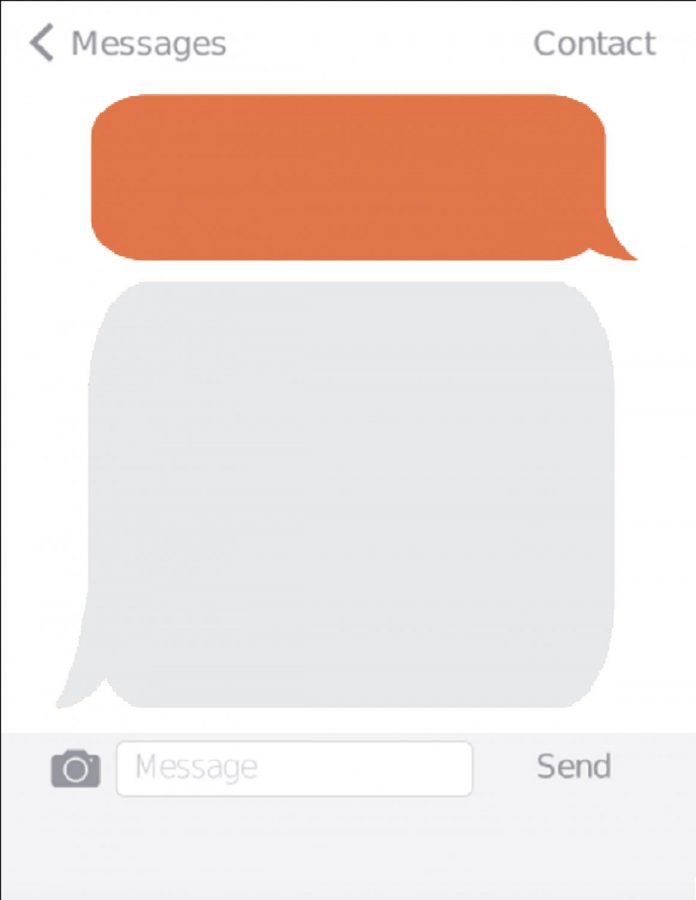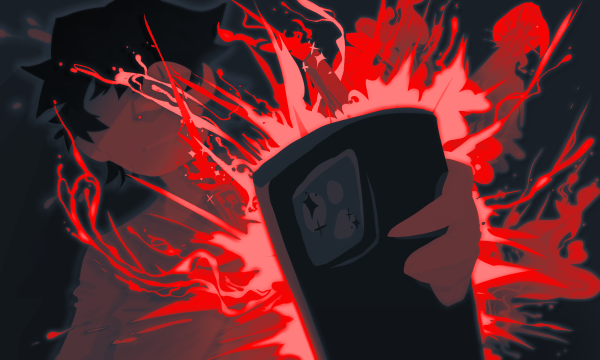The Fallacy of the Friendzone
Why the concept of a friendzone is inherently toxic
Receiving a text message has the effect on people of a euphoric release of dopamine. Which makes it even more disheartening to open a message and have “Ur such a b****, I thought u cared about me. Why would u lead me on like that?” glowing across the screen. And just for a moment your heart breaks.
It’s the dreaded question. The invitation to “hang out,” the fake parties, the fun plans that the other person never really intended to happen. And the rejection that follows. That’s the moment everything goes down the drain. Except it’s not just that moment.
Rarely does it seem to stop there. Things drag on and all of a sudden their friends know, and you become a slut in the minds of people you’ve never even met.
Manipulation is the key that turns the friendzone from harmless and playful to dogmatically predatory.
Everything is fine and dandy if you genuinely get played, which happens to the best of us. But there’s a point where it evolves into the notion that someone “friendzoned” you when all they wanted in the first place was to be friends.
It’s hard enough becoming friends with the opposite gender- or the gender your sexuality prefers- without going through the phase of constant pestering about there being something romantic between the involved parties. And it’s made even harder by the people who do have those romantic (sexual) intentions.
The primary issue lies in how people use the term. When you ask someone for something sexual and they say no, it’s not getting friendzoned. It’s rejection, but we seem to have come to some unspoken agreement that in order to recover from personal guilt or embarrassment in such a situation it is imperative to play the victim and defame the other person involved. This egotistical pathway of thought leads down a dangerous path that paces the border of sexual harassment.
Saying you were friendzoned is like saying that just because you’re nice to someone and they’re nice to you in return, you should be able to expect something from them. Which, when put into words, is clearly not okay, but the term and thought process behind it have become so commonplace that we rarely think about the consequences it has on others.
This mindset encourages us to accept that we are wrong for not wanting to be involved with someone else, which leads to, unfortunately, a vicious cycle of pressure and guilt. At first it may seem harmless, but being ridiculed for having your own interests and desires is devaluing and invalidating. And as most things do with time, it wears. It wears down on confidence, self-worth, and expectations of relationships and reality.
Believing that you owe someone something for wanting to be friends is not only false, but damaging to perception of standards. When we start to think that you must return a “favor,” and this give-receive relationship becomes a friends-sexual relationship, it redefines physical contact and emotional connections with negative connotations.
Additionally, the friendzone villainizes sticking up for yourself and your intentions in a relationship. Being friendzoned has become a grounds for peer-based torment, making it a place no one wants to go. Making it a place you can seemingly never recover from, only furthering the pressure to accomodate to the needs of others to avoid guilt and persecution.
The friendzone is a made up place that was, whether intentionally or not, built on a foundation of pillars that convey an unhealthy and unrealistic message of how relationships should function and hierarchies should develop. The friendzone has become a place where people who expect more than they deserve in return for being friends go to play the victim.
It hurts to be hated for not putting out for someone, and it hurts even worse to have to feel guilty for standing up for yourself. No one should be made to feel as though they are in the wrong for saying no. No excuse is necessary and we don’t owe anyone anything when it comes to our bodies. If I’m not down, I don’t need an excuse, it’s not because I’m “too innocent” or “a slut who leads people on,” it’s because I never had or developed romantic intentions.
I’m not looking for sex, I’m looking for a friend.
Your donation will support the student journalists of Francis Howell Central High School. Your contribution will allow us to purchase equipment and cover our annual website hosting costs. FHCToday.com and our subsequent publications are dedicated to the students by the students. We hope you consider donating to allow us to continue our mission of a connected and well-informed student body.








